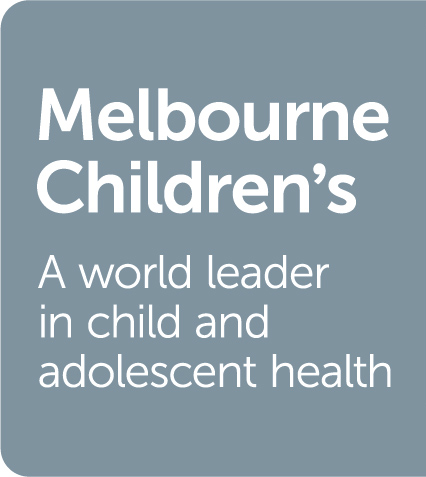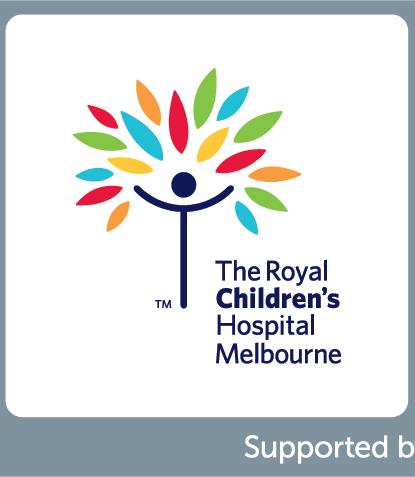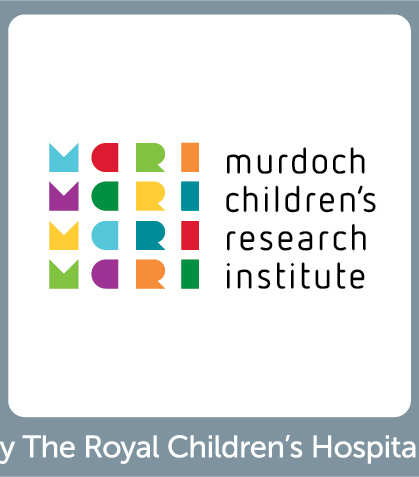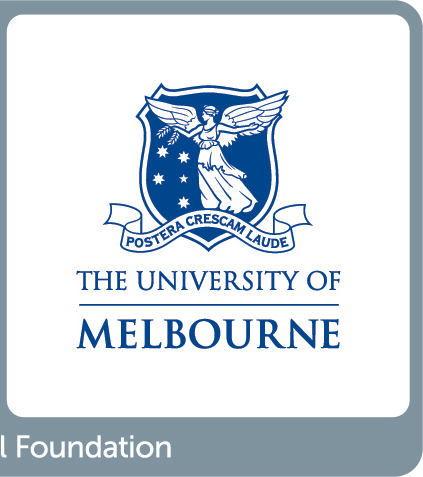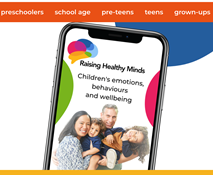Infant Mental Health
What is infant mental health?
Infant mental health is a child’s capacity to experience and express emotions, foster relationships, explore the environment and learn.
Mental health difficulties impact infants, just as they do older children. But infancy/early childhood is a unique period of rapid development, where children’s brains develop fastest and are at their most ‘plastic’ and adaptable.
This fast growth, along with their dependency on caregivers for emotional regulation, makes babies and toddlers more vulnerable to the impacts of stress and trauma. However, it also creates a powerful opportunity for early treatment, intervention and prevention of mental illness through childhood and into adulthood.
Infant mental health in a paediatric setting
Infants are more likely than any other age group to experience accidents, trauma from medical procedures, family violence and emotional or physical neglect.
Babies are born wanting to connect with people and their environment and are entirely dependent on caregivers for their physical and emotional wellbeing. Being born prematurely, being sick, having a disability, or having a slower or different pattern of development can impact an infant’s mental health.
If a baby ends up in hospital, they can’t always be with their parents/carers. Illness and separation at this critical time for infant-parent attachment can have adverse effects on the mental health of both infant and parent.
Even so, the services in place to support families can make a huge difference. Hear from our colleagues at The Royal Children’s Hospital about how their work is improving mental outcomes for infants and families.
What does the evidence tell us?
Early childhood development
The importance of the early years of life is now well understood, with decades of science clearly showing that early experiences shape brain development which provides the foundation for all future learning, behaviour, and health.
Development requires strong and positive experiences to promote early attachment, later emotion regulation, relationships and self-esteem.
The impacts of stress and adversity
Stress and adversity experienced during early years can have a negative impact on babies’ physical and mental health as they grow.
This period of rapid brain development leaves infants vulnerable to trauma and mental illness, but also gives them a unique capacity to benefit from mental health intervention.
Early intervention and prevention
One of the most effective ways to prevent mental health disorders across the lifespan is to intervene in the first three years of life.
Tools and resources
Podcasts
Speaker: Brigid Jordan is a social worker and infant mental health clinician, educator and researcher. Her research focuses on the impact of early life stress on the health and mental health of infants. Brigid played a key role in developing the clinical field of infant mental health in Australia and has served on the Board of Directors and Executive Committee of the World Association for Infant Mental Health.
The Melbourne Children’s Campus Education Hub has produced this this four-part series on infant mental health with expert guest, Associate Professor Brigid Jordan. Just click the links below to go to Education Hub.
The series covers the emotional development principles of patients aged 0-5 years old, how this can be disrupted by hospitalisation, and how we can support the mental health of our youngest children and families.
Part 1: Infant emotion and behaviour dysregulation:
- what is infant mental health
- how babies learn to organise their emotions and behaviour
- how hospital can be disrupted these processes and how health
- how professionals can do to minimise the negative impacts of hospital
Part 2: Normal infant crying, sleeping and feeding:
- crying, sleeping and feeding are normal infant behaviours, so what are the signs that there might be a problem?
- what are the impacts on babies and their parents?
- how can healthcare workers can help?
Part 3: Hospitalisation from a toddler’s point of view
- provides us with a framework for understanding how toddlers react to illness
- explores the difference between tolerable stress and trauma
Part 4: How to communicate with pre-schoolers:
- honesty is the key to communicating with toddlers and children
- useful strategies for talking to toddlers truthfully about their illness, asking and answering questions, acknowledging their feelings and listening
Webinars
The mental health of sick babies in hospital
This Melbourne Children’s Campus Grand Rounds webinar explores the effects hospitalisation for the treatment of serious illness has on the mental health of infants and their families, by coupling past research with clinical experiences during the COVID-19 pandemic.
Speakers:
- Dr Megan Chapman, Senior Clinical Psychologist and Infant Mental Health Program Coordinator at RCH.
- Associate Professor Campbell Paul, Consultant Infant and Child Psychiatrist, Clinical Lead of the Infant Mental Health Program at RCH and the Childrens Campus Mental Health Strategy Family Centred Care project, and President of the World Association of Infant Mental Health.
Placing the baby and family at the centre of everything we do
This Melbourne Children’s Campus Grand Rounds webinar describes the development and implementation of COCOON – the Circle of Care Optimising Outcomes for Newborns.
COCOON is a patient-centred, family-integrated, and baby-led model of care designed to minimise adverse effects in the Neonatal Intensive Care Unit (NICU). It describes:
- the science and international guidelines used to inform development alongside staff, consumer and other stakeholder input
- resources used by our staff every day to mentor and coach families to maintain the parenting role
- positive impacts of COCOON experienced by our staff and consumers
- plans for upscaling this model and further studying its impacts, including outcomes for infant and parent mental health outcomes
Speakers:
- Dr Leah Hickey, Director of Neonatal Medicine and COCOON Project Lead at RCH
- Dr Megan Chapman, Senior Clinical Psychologist and Infant Mental Health Program Coordinator at RCH.
- Ms Jenna Rhodes, Ms Polly St. John and Mr Arnie Krishnan, COCOON Care Coordinators
- Ms Emma Davison, Music Therapist
Training
Mindful Introduction to Infant Mental Health (MIIMH)
This half-day, on-demand online training course introduces ideas, research and clinical practice guidance for the mental health and wellbeing of children aged 0-5 years, as well as that of their families/carers.
Over 4 modules, it covers infant and early childhood development, an introduction to Attachment Theory, and principles of therapeutic work with infants and young children and their families/carers.
It provides an ideal start for clinicians beginning practice with infants and young children, as well as those seeking a refresher on the topic. The training is suitable for clinicians (all disciplines) working in CAMHS/CYMHS and professionals working in Child Protection, family support, early childhood sectors and those interested in infant mental health.
Mindful Infant Mental Health Advanced Training (IMHAT)
This one-year certificate course is administered through Mindful and is coordinated by Associate Professor Campbell Paul and Associate Professor Brigid Jordan at the Royal Children's Hospital.
It is suitable for health care professionals working in the infant mental health field wanting to develop their understanding and clinical skills in working with infants and parents.
Resources for families
Baby cues: What are they trying to say?
Babies thrive on engaging with their families who support them to gradually learn about the world around them. This resource developed by COCOON contains:
- tips on how to recognise when your baby is ready to engage
- how to get the most out of your shared interactions
- how to tell when your baby is tired or disinterested and just needs to be settled again
RCH Kids Health Information fact sheet: Mental health – infants and young children
This resource includes information on:
- signs of social or emotional concerns in a baby, toddler or young child
- things that can affect mental health in infants and toddlers
- how parents can help build resilience in children
Raising Children’s Network guide: Good mental health for babies and toddlers
This guide for families includes the following key points:
- good mental health is important for baby/toddler development and wellbeing
- how parents/carers can lay the foundations for good mental health from birth
- strong relationships, play and safe environments are key to good mental health in babies/toddlers
- looking after yourself is an important part of supporting mental health in young children
- seeking professional help if you’re concerned about your child’s behaviour, development or wellbeing
Raising Childrens Network Raising Healthy Minds app
This free mobile device app for families answers questions about child wellbeing and shares practical tips for day-to-day family life. Parents/carers can tailor to their child, family and interests. The app is constantly being updated with the latest reliable information.
Research
The Murdoch Children’s Research Institute Infant Mental Health Research Group focusses on understanding early life stress because of serious illness, hospital encounters, significant family stress and/or social disadvantage; and its relationship with the health/mental health of infants, young children and their families.
Research has a strong focus on clinical and translational outcomes in paediatric social work and infant mental health. Find out more about infant mental health research projects and publications.
Acknowledgement of Country



At Mental Health Central we acknowledge the traditional custodians of the land on which we live, gather and work. We recognise their continuing connection to land, water and community. We pay respect to Elders past, present and emerging.
